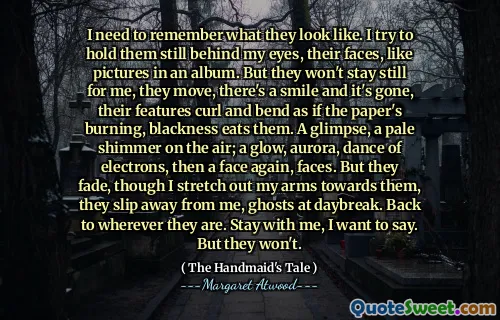One and one and one and one doesn't equal four. Each one remains unique, there is no way of joining them together. They cannot be exchanged, one for the other. They cannot replace each other.
In "The Handmaid's Tale," Margaret Atwood explores the concept of individuality and the limitations of unity. The recurring idea that "one and one and one and one doesn't equal four" signifies that each person retains their distinct identity, and no amount of merging can create something entirely new. This notion emphasizes the importance of recognizing and valuing differences rather than attempting to combine or standardize them.
The quote illustrates that individuals are irreplaceable and cannot be substituted for one another. In a society that often seeks to homogenize experiences and identities, Atwood’s perspective serves as a reminder that true connection cannot be achieved through mere aggregation of individuals. Each person contributes uniquely to the fabric of society, and their singular experiences and perspectives must be acknowledged and honored.






